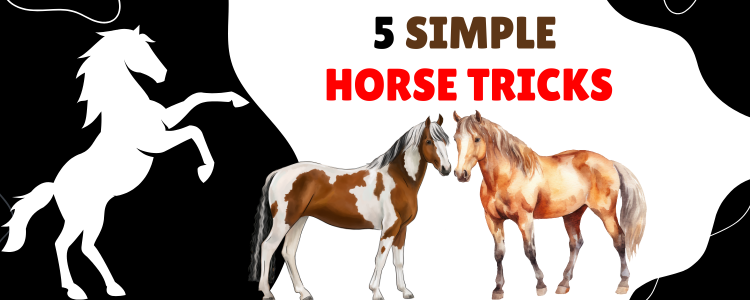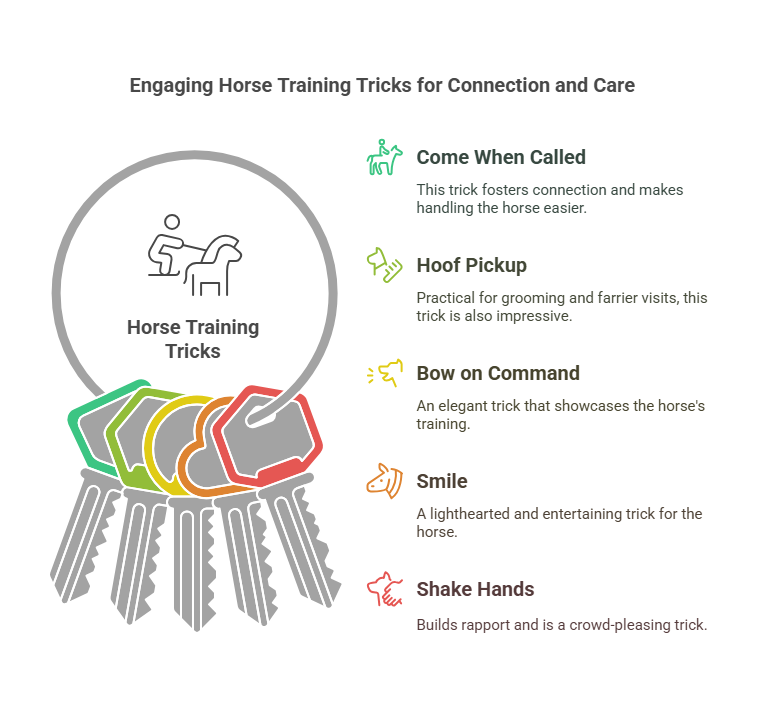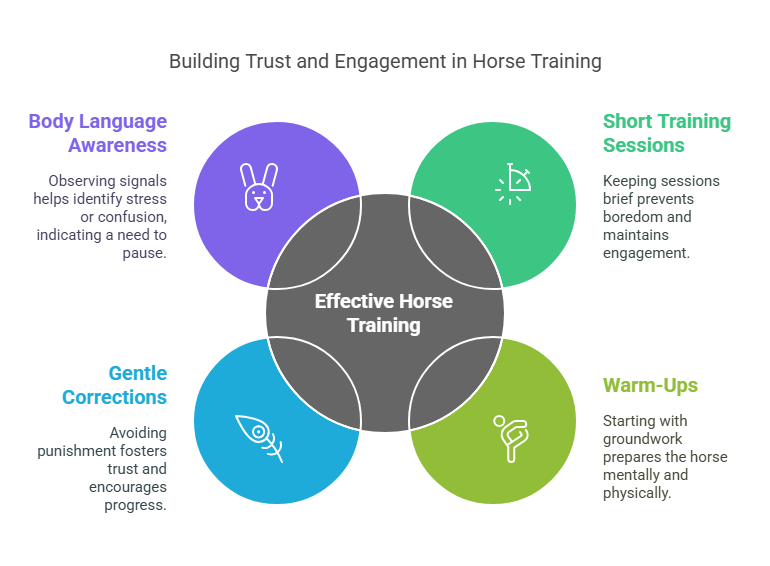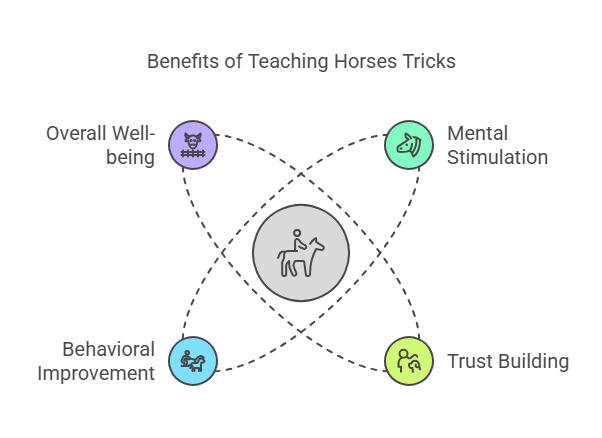Horses are incredible animals. They are intelligent, eager to learn, and bond deeply with their owners. Teaching your horse new tricks can be a rewarding experience that strengthens your relationship. Here, you’ll find simple tricks you can teach your horse, along with tips to make the process enjoyable and effective.
Why Teaching Your Horse Tricks is Important
Teaching tricks helps stimulate your horse’s mind and builds trust between you and your horse. According to experts at Equine Behavior Solutions, “Engaging your horse in mental activities promotes overall well-being and reduces behavioral issues.” By investing time in training, you can create a happier, healthier horse.
Simple Tricks to Get Started
1. Teach Your Horse to Come When Called
This is one of the most basic but valuable tricks. It makes handling your horse easier and fosters connection.
- How To Do It:
- Stand at a short distance from your horse.
- Use a consistent cue, like calling their name or using a whistle.
- Reward them immediately with a treat when they approach.
- Gradually increase the distance over time.
2. Train Your Horse to Pick Up Its Hoof
This trick is not only impressive but also practical for grooming and farrier visits.
- How To Do It:
- Stand beside your horse’s shoulder.
- Use a verbal cue like “lift.”
- Gently tap their leg or touch the back of their hoof.
- Reward them with a treat or praise when they respond.
3. Bow on Command
This trick looks elegant and can be a fun way to showcase your horse’s training.
- How To Do It:
- Hold a treat between your horse’s front legs.
- Encourage them to lower their head to reach the treat.
- Pair this motion with the cue word “bow.”
- Reward small progress and be patient.
4. Teach Your Horse to Smile
This lighthearted trick is easy and entertaining.
- How To Do It:
- Use a treat to encourage your horse to lift its upper lip.
- Add a verbal cue like “smile” as they mimic the action.
- Reinforce with rewards until they associate the cue with the behavior.
5. Shake Hands
Shaking hands is a crowd-pleasing trick and great for building rapport.
- How To Do It:
- Gently tap your horse’s leg.
- When they lift it, say the cue “shake.”
- Reward immediately to encourage repetition.
Training Tips for Success
Be Consistent
Horses thrive on routine. Use consistent cues and training times to make learning easier.
Start Small
Begin with simple tricks before advancing to more complex ones. This builds your horse’s confidence.
Use Positive Reinforcement
Reward-based training is proven to be effective. Research from the Journal of Applied Animal Behavior Science confirms that “positive reinforcement accelerates learning in horses.” Read the full study here.
Be Patient
Every horse learns at its own pace. Celebrate small victories and avoid frustration.
Ensure Safety
Train in a calm environment free of distractions. Always wear proper safety gear and maintain awareness of your horse’s body language.
Benefits of Teaching Tricks to Horses
- Builds Confidence: Learning tricks can help shy or nervous horses gain confidence.
- Strengthens Bond: Training enhances your connection with your horse.
- Improves Focus: Trick training keeps your horse’s mind sharp.
- Enhances Obedience: Teaching tricks naturally improves your horse’s responsiveness to cues.
Common Mistakes to Avoid
Overtraining
Short sessions (10-15 minutes) are best to keep your horse engaged and prevent boredom.
Skipping Warm-Ups
Always start with basic groundwork to prepare your horse mentally and physically.
Using Harsh Corrections
Avoid punishment. It can damage trust and slow progress.
Ignoring Body Language
Pay attention to your horse’s signals. Signs of stress or confusion mean it’s time to pause.
Real-Life Success Stories
A horse owner in Texas taught her mare to bow within two weeks. She credits her success to “patience, consistent training, and lots of carrots.” Similarly, a rider in California trained her gelding to smile, becoming the highlight of local barn events.
FAQs
Q: What age should I start training my horse?
A: Horses can begin learning simple tricks as young as two years old, depending on their temperament.
Q: How often should I train my horse?
A: Aim for 3-5 short sessions per week to keep your horse engaged without overworking.
Q: What treats are best for training?
A: Carrots, apple slices, and commercially available horse treats work well.
Q: How do I know if my horse is stressed during training?
A: Watch for signs like pinned ears, tail swishing, or backing away. Pause and reassess your approach.
Q: Can older horses learn tricks?
A: Yes, horses of all ages can learn tricks. Just be mindful of any physical limitations.
Teaching your horse tricks is more than a fun activity. It’s an opportunity to bond, improve communication, and keep your horse mentally stimulated. With patience, consistency, and the right approach, your horse can master these tricks in no time. Happy training!




